Un signe d'amour
Vous souvenez-vous du début des années 1980 ? Plus précisément, vous souvenez-vous de la famine en Éthiopie au début des années 1980 ? Les sécheresses récurrentes, les mauvaises récoltes et les conflits ont poussé des millions de personnes dans le dénuement et la famine. Les images de cette catastrophe ont provoqué une onde de choc dans le monde entier. Peut-être pour la première fois à une telle échelle mondiale, nous avons été confrontés aux réalités dévastatrices de la famine. Selon les Nations Unies, près d’un million de personnes ont péri à cause de la famine. Des millions d’autres ont été déplacés et plongés dans l’insécurité et une pauvreté extrême.
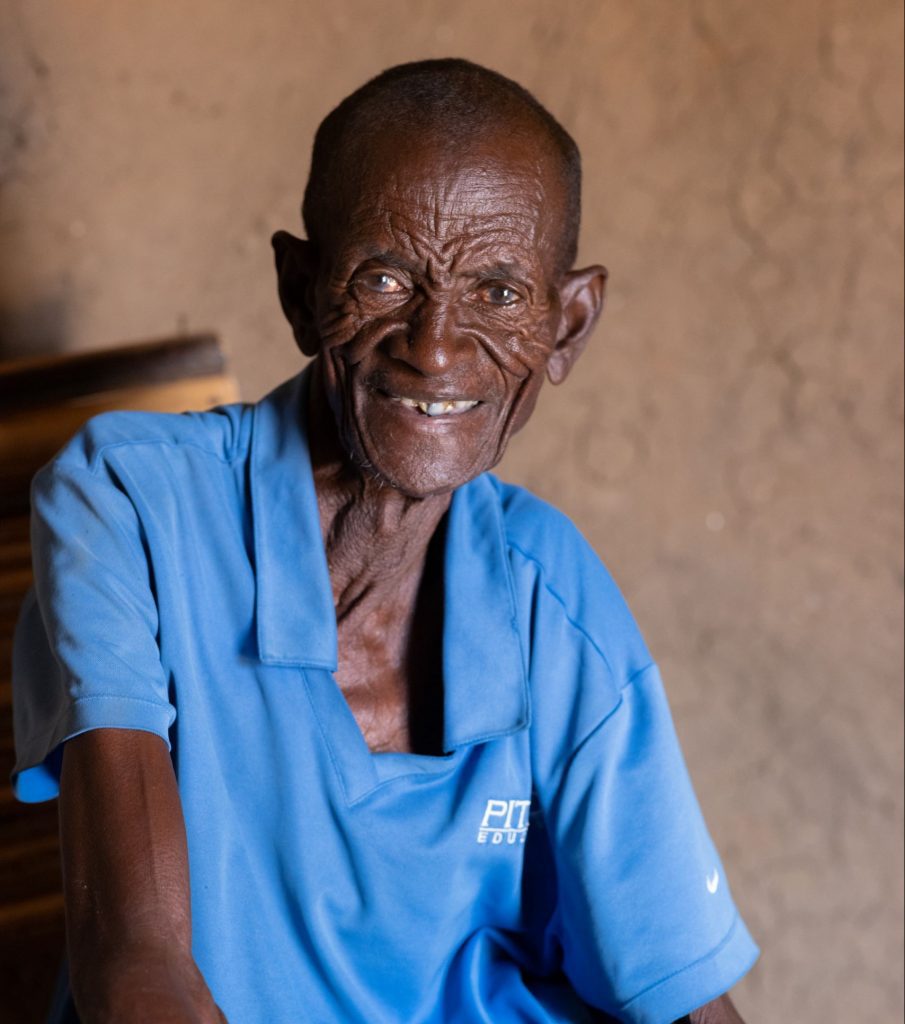
La crise nous a galvanisés à l’échelle internationale. Des citoyens aux célébrités, le monde entier s’est uni pour sensibiliser l’opinion et trouver des fonds pour une réponse vitale. Nous avons vivement ressenti l'injustice de la situation. Un saint mécontentement nous a incités à agir et à sauver des vies.
Les humanitaires ont beaucoup appris de cette crise. Le secteur a travaillé en collaboration et a développé de nouvelles méthodes pour détecter les facteurs qui contribuent aux crises alimentaires. L'analyse des signes avant-coureurs aide à informer les décideurs, en leur permettant de mettre en œuvre des stratégies susceptibles de réduire l'ampleur des catastrophes et d'orienter l'aide là où elle est le plus nécessaire.
Nous avons également appris que lorsque nous nous unissons, nous pouvons réellement faire une réelle différence. Nous pouvons vraiment sauver des vies.
Il est temps d'appliquer cette leçon.
Vous ne le savez peut-être pas, mais le monde est confronté à une crise alimentaire mondiale qui éclipse toutes celles auxquelles nous avons été confrontés auparavant.
Ekal Lowoyan est né et a grandi dans le comté de Turkana, au nord du Kenya. Au cours de sa vie, il a été témoin de nombreux changements dans la région.
« Avant les sécheresses, cette région abritait de nombreux pâturages et du bétail », raconte-t-il à propos des terres entourant sa maison. Ekal, comme beaucoup d’autres dans cette région, est traditionnellement un éleveur qui dépend de son bétail pour sa subsistance. « Personnellement, j'avais entre 100 et 200 chèvres. Il y avait aussi des vaches. Mais j’ai perdu tout mon bétail à cause de la sécheresse de 1980. J’ai été obligé de migrer ailleurs à la recherche de travail.
Lorsque son pays s’est remis de la sécheresse, Ekal est revenu. « Quand je suis revenu, il y avait à nouveau des pâturages et du bétail. Il y avait encore des sécheresses, mais elles étaient limitées. Peut-être une saison, puis de la pluie. Peut-être deux saisons, puis de la pluie. Mais cela a changé. Les choses sont devenues imprévisibles. Aujourd'hui, la sécheresse est pire qu'en 1980. La sécheresse de 1980 n'a duré qu'un an, puis il a plu. La sécheresse d'aujourd'hui fait maintenant cinq ans sans pluie. Cette sécheresse a mis fin à tout ce qui avait survécu aux petites sécheresses précédentes. Aujourd'hui, la sécheresse s'attaque aux êtres humains. » « Avant les sécheresses, cette région abritait de nombreux pâturages et du bétail », raconte-t-il à propos des terres entourant sa maison. Ekal, comme beaucoup d’autres dans cette région, est traditionnellement un éleveur qui dépend de son bétail pour sa subsistance. « Personnellement, j'avais entre 100 et 200 chèvres. Il y avait aussi des vaches. Mais j’ai perdu tout mon bétail à cause de la sécheresse de 1980. J’ai été obligé de migrer ailleurs à la recherche de travail.
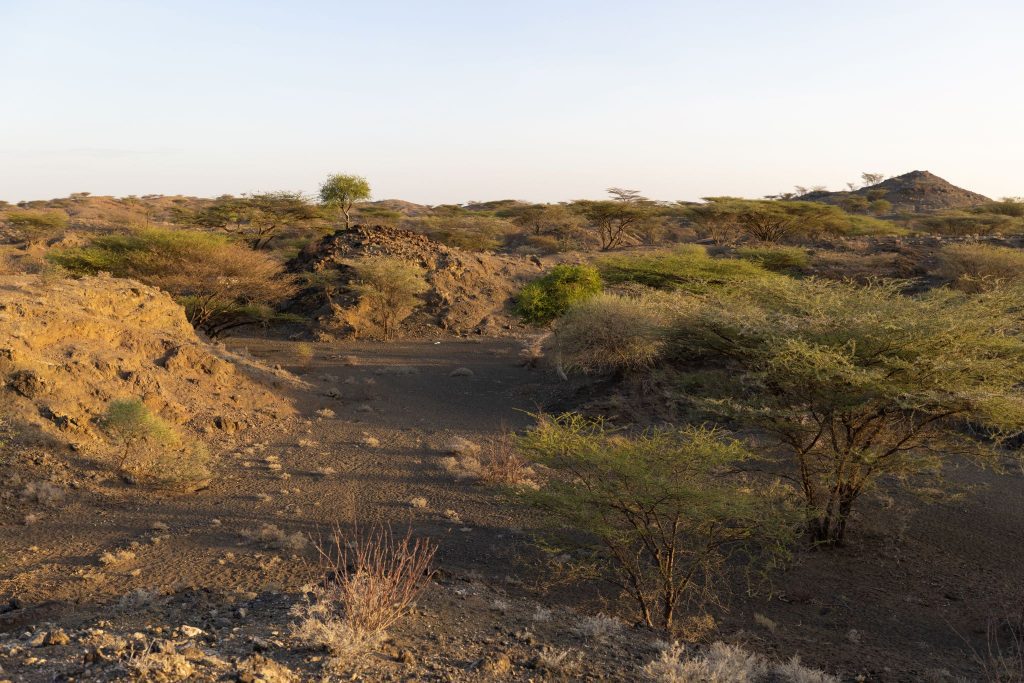
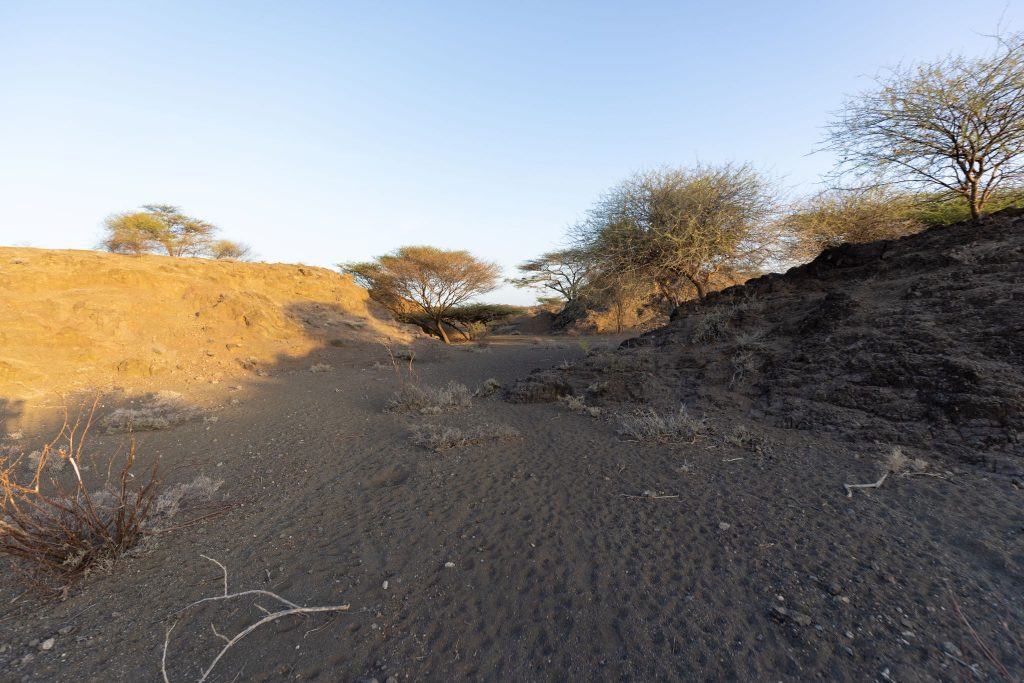
L’emprise de la faim dépasse aujourd’hui le Kenya ou même la Corne de l’Afrique. Soixante-dix-neuf pays sont actuellement confrontés à une insécurité alimentaire aiguë. Cela signifie que les gens doivent prendre des décisions difficiles, comme vendre des actifs, rationner la taille des portions et sauter des repas. Les familles se désagrègent à mesure que leurs membres migrent à la recherche de nourriture et de travail. Certaines décisions sont véritablement déchirantes lorsque les droits de l’homme et la dignité sont mis de côté ou violés dans la quête de la survie.
La crise alimentaire actuelle trouve son origine dans des phénomènes climatiques extrêmes, comme la sécheresse prolongée dans le comté de Turkana. Mais il existe également d’autres causes. Les conflits et l'instabilité détruisent les récoltes et dévastent les champs, détruisant les récoltes de cette année et celles des années à venir. L’insécurité éloigne les gens de leurs fermes et perturbe les autres formes de moyens de subsistance.
Eman élève seule ses cinq enfants dans un Yémen déchiré par la guerre. À 34 ans, elle est l'unique soutien de famille de ses enfants âgés de quatre à 11 ans. Elle n'était pas toujours seule. Avant la guerre, qui fait rage depuis près d’une décennie, Eman et son mari menaient une vie stable. Grâce à leurs gains, ils ont pu construire une petite maison.
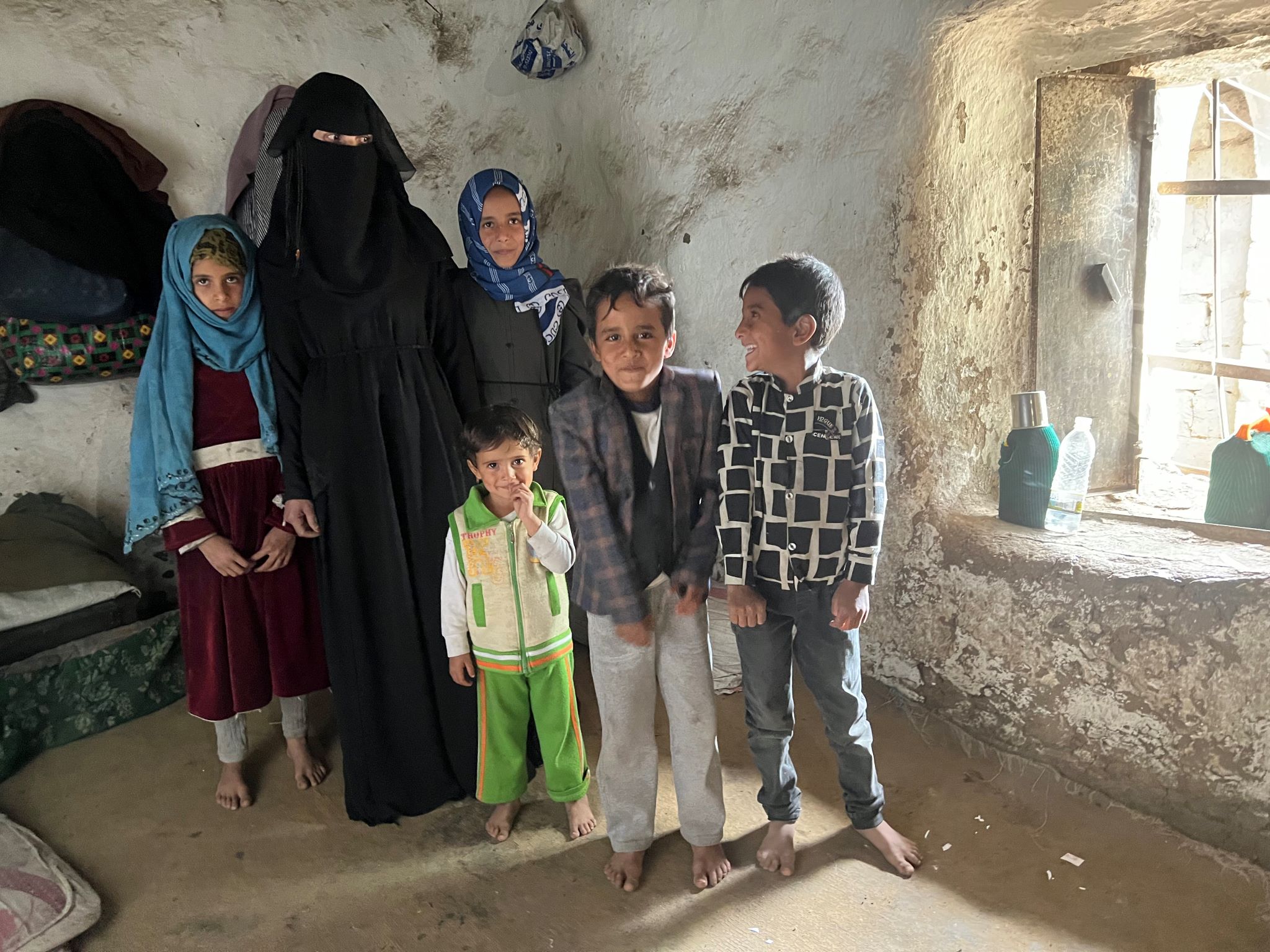
«Notre vie était un pur paradis», se souvient Eman. « Jusqu’à ce que la guerre éclate en 2015. Puis notre vie a été bouleversée. Notre maison a été bombardée. Nous avons dû retourner dans notre ville natale. À notre retour, nous n’avions ni assez d’argent pour vivre ni nous loger.
Un parent leur a permis de vivre dans une ancienne grange. "C'est un endroit invivable et qui menace de s'effondrer à tout moment."
Le mari d'Eman n'a pas perdu de temps à chercher du travail pour pouvoir subvenir aux besoins de sa famille. « Il a continué à travailler dur malgré les bas salaires qui lui étaient versés. À d’autres moments, il ne trouvait pas de travail en raison des circonstances de la guerre. »
Le mari d'Eman est décédé tragiquement d'une crise cardiaque alors qu'il travaillait dans une ferme. « Je me suis retrouvé perdu et je ne savais pas quoi faire. Mon mari est décédé et m'a laissé le fardeau de quatre enfants et enceinte du cinquième au cours de mon quatrième mois. Je n’ai trouvé personne vers qui me tourner à part Dieu.
Eman assume la responsabilité de subvenir aux besoins de cinq jeunes enfants alors que son pays est dévasté par la guerre. « Les jours passaient et nous vivions grâce à la charité de quelques personnes bienveillantes. Ensuite, j'ai commencé à chercher du travail pour pouvoir subvenir aux besoins de mes enfants, notamment en matière de nourriture, de vêtements, de médicaments, de subsistance et d'éducation. J'ai travaillé dans des fermes et dans des maisons pour des salaires très bas qui n'étaient pas suffisants pour assurer les bases les plus simples d'une vie décente. Je travaillais à toute heure de la journée et ce qui me faisait mal, c’est de ne pas trouver le temps de m’occuper de mes enfants, même si j’étais déterminé à ne plus tendre la main à personne.
Les conflits comme celui du Yémen provoquent une détresse généralisée parmi la population locale. Malheureusement, des conflits lointains peuvent aussi intensifier leurs souffrances. La guerre en Ukraine a des conséquences dévastatrices sur de nombreux pays, dont le Kenya et le Yémen. L’Ukraine et la Russie sont d’importants fournisseurs de céréales, de semences et d’engrais pour de nombreux pays en développement. La guerre a provoqué une pénurie alimentaire tout en augmentant les coûts de production alimentaire.
La troisième cause de la faim est l’inflation galopante qui rend les prix alimentaires hors de portée pour beaucoup. Même au Canada, nous ressentons la pression à mesure que les produits d'épicerie et autres coûts de la vie deviennent de plus en plus chers.
Cette crise ne s'est pas produite du jour au lendemain. Les signes avant-coureurs ont été détectés, surveillés et analysés. Le secteur humanitaire a émis des avertissements, des appels à l’action et met déjà en œuvre des réponses. Mais vous serez peut-être surpris d’apprendre que 828 millions de personnes ne savent pas d’où viendra leur prochain repas. Vous pourriez être choqué d’apprendre que plus de 900 000 personnes dans le monde sont aux prises avec des conditions proches de la famine. C’est parce que cette crise ne bénéficie tout simplement pas de la couverture médiatique dont elle a besoin.
Je ne sais pas pourquoi les médias ne couvrent pas cette crise comme ils l'ont fait dans les années 1980. Mais la crise est réelle.
Notre réponse à la faim d’aujourd’hui doit être aussi réelle et résolue qu’elle l’était dans les années 80. Compte tenu de l’ampleur de la crise, il va falloir que nous nous rassemblions tous à nouveau.
C'est pourquoi ADRA Canada a lancé son La justice à la table campagne. Jusqu'au 31 mars 2023, cette campagne vise à accroître les fonds de sensibilisation pour lutter contre la faim dans 13 pays grâce à une aide d'urgence et au développement des moyens de subsistance. L'objectif de la campagne de $2,4 millions sera multiplié à $15 millions, grâce au partenariat d'ADRA avec la Banque canadienne de grains. Dans un monde où notre dollar ne va pas aussi loin, c’est une bonne nouvelle et une bonne occasion de faire une réelle différence.
Le Yémen fait partie des pays qui peuvent continuer à recevoir un soutien grâce à La justice à la table. ADRA et la Banque canadienne de grains répondent avec une aide alimentaire d'urgence depuis de nombreuses années.
Eman a participé à un projet d'aide en espèces. « Après avoir reçu l'aide en espèces, la situation de ma famille s'est améliorée de plus en plus. Dieu merci, j'ai pu acheter la nourriture et les médicaments nécessaires pour mes enfants… J'ai été soulagée d'une forte pression. J’ai eu le temps de m’occuper de mes enfants.
Malheureusement, le projet initial auquel Eman avait participé a pris fin lorsque le financement a été épuisé. «Je suis revenue à la souffrance et à la misère que j'avais vécues», partage-t-elle.
Six mois plus tard, Eman était ravi d'apprendre que le financement avait été renouvelé pour un autre projet. «Maintenant, l'espoir est revenu. Nous prions pour que cette aide se poursuive jusqu’à ce que nos conditions de vie s’améliorent et que nous soyons à nouveau capables de voler de nos propres ailes.
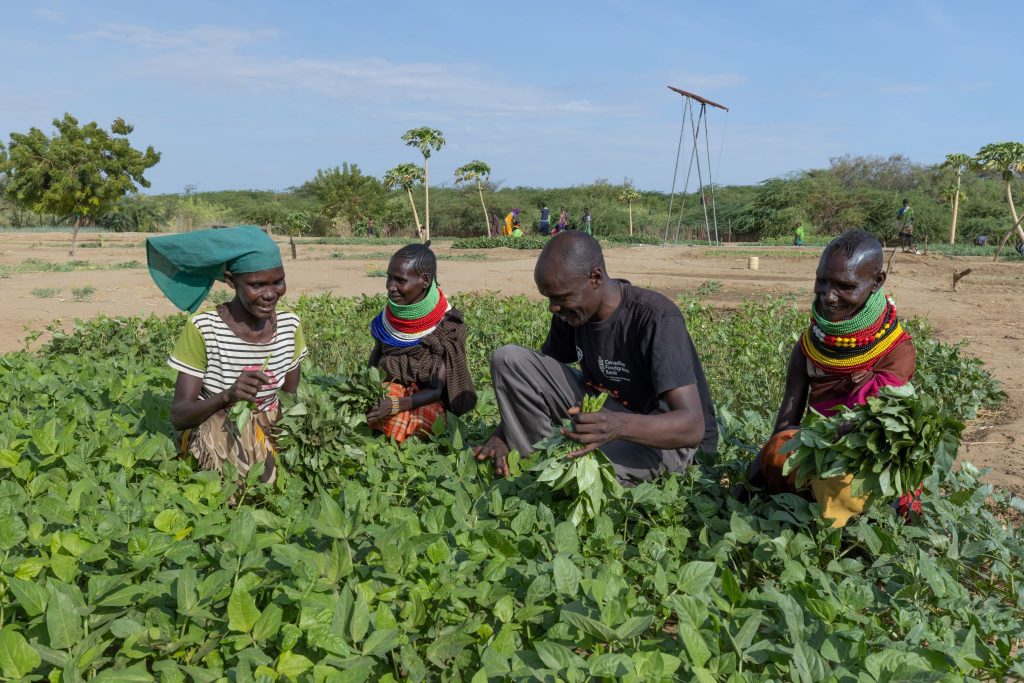
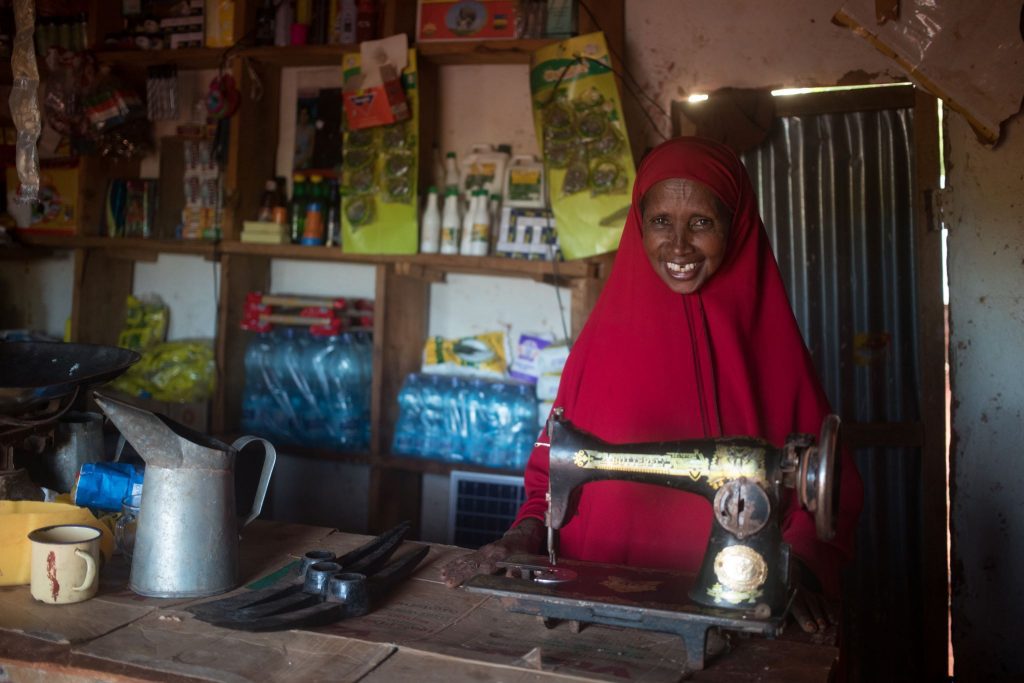
Ekal vient d'une autre région du comté de Turkana où ADRA et la Banque canadienne de grains ont aidé les familles à traverser la sécheresse avec une aide en espèces. Ekal et sa famille ont participé au projet qui a duré six mois. Ekal, devenu handicapé à l'âge de 15 ans, subvient aux besoins de sa femme et de ses cinq enfants, dont deux sont également handicapés.
« L’argent a vraiment aidé ma famille. J'ai utilisé cet argent pour acheter de la nourriture. J'en ai également utilisé une autre portion pour les uniformes scolaires de mes enfants. L’argent a permis de répondre à d’autres besoins de notre foyer, comme des vêtements et des chaussures.
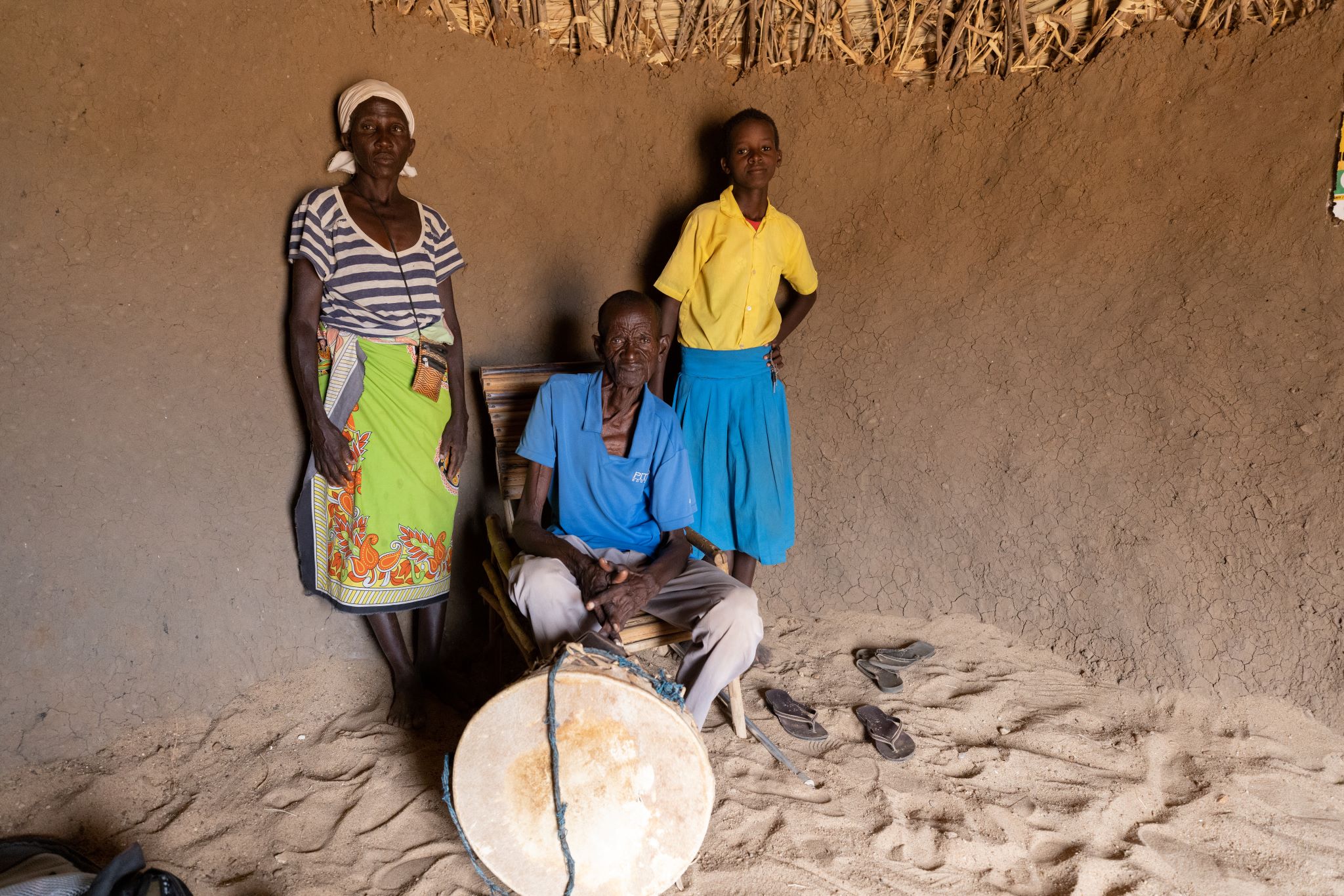
Le La justice à la table La campagne garantira qu'ADRA puisse continuer à atteindre des familles comme celles d'Ekal et d'Eman avec un soutien vital.
Alors que nous sommes confrontés à cette crise, nous devons réagir par un soulagement immédiat. Mais nous devons aussi garder un œil sur l’avenir. C'est pourquoi certains des projets de la campagne investiront dans des approches à long terme pour réduire la faim en formant les communautés à cultiver leur propre nourriture. Certains projets offriront également des opportunités de subsistance afin que les familles puissent reprendre le contrôle de leur vie. Par exemple, au Liban, 50% de familles s'inquiètent de savoir si elles auront suffisamment de nourriture. Une crise socio-économique complexe, aggravée par la pandémie et l'explosion de Beyrouth, a épuisé les moyens de subsistance des familles. ADRA et la Banque canadienne de grains aident les gens entreprenants à récupérer leurs entreprises qui ont été touchées par l'explosion de Beyrouth.
« C'est un signe d'amour », dit Ekal à propos de la réponse d'ADRA et des sympathisants qui rendent cela possible. « Ce n'est pas facile parce que vous ne nous connaissez pas ; nous ne vous connaissons pas. Je suis très reconnaissant envers les donateurs qui apportent leur soutien. Ils ont rendu ma vie pendant cette période de six mois douce, bonne, sans stress. Chaque mois, je savais que j'avais quelque chose. Je prie pour que vous continuiez à soutenir les personnes vulnérables de la société.
Un signe d'amour, dit Ekal. ADRA croit que la seule solution à la crise de la faim est l'amour.
Il est temps de détrôner la faim et de donner une place à la justice.
Faisons la différence ensemble !
Nouvelles et histoires connexes
- Communiqués de presse, Histoires
- Communiqués de presse
- Communiqués de presse, Histoires
- Communiqués de presse, Histoires